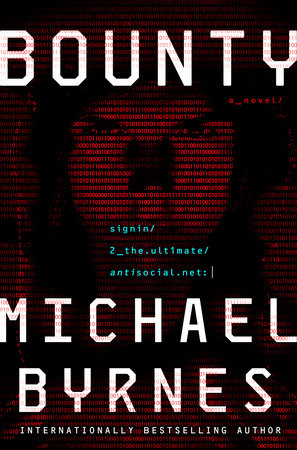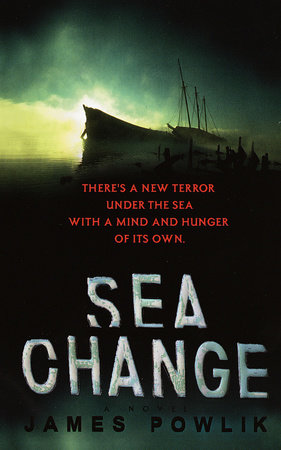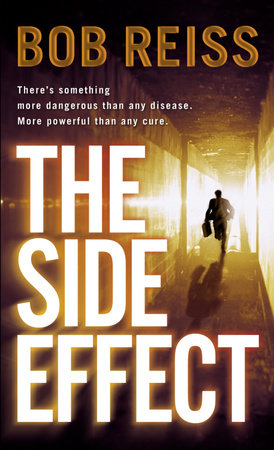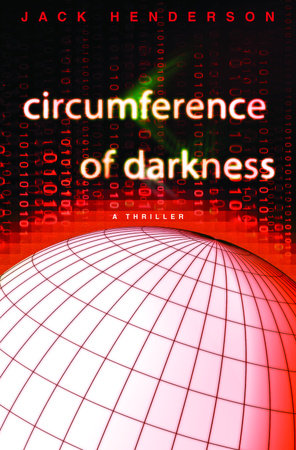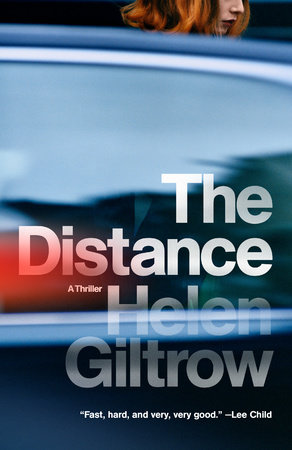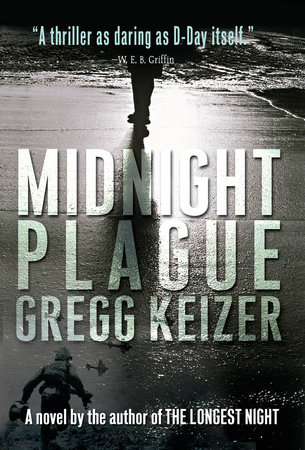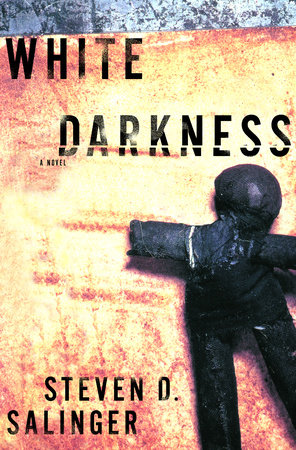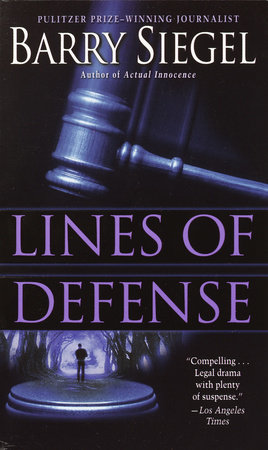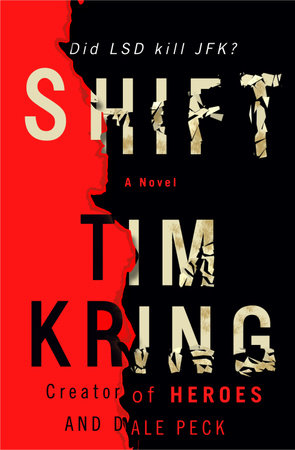Author Q&A
A Conversation with Hector Macdonald
Q: How would you describe this book?
Hector Macdonald: It’s a thriller about a college student who volunteers for a science experiment that takes him to Africa. Once there he becomes enmeshed in a massive, increasingly frightening and terrifying event that completely takes control of his life. Ultimately, I see this as a book about trust and betrayal and relationships going sour. That, rather than the science, is where the story’s emphasis lies. The science is simply an excuse to tell a good story.
Q: Where did the idea for this story come from?
HM: It’s hard to say exactly what made me think of an emotion sensing device but that was the original idea behind the story: what would happen if we could somehow measure emotions? In a way emotions are the last scientific frontier. There’s been a lot of work done in the biological sciences, the human sciences, to explore consciousness and other aspects of rational brains, but emotion, one of the most important driving forces in human evolution, in history, in individual character, seems to have been ignored. Trying to bring this subject into the realm of hard science was a fascinating exercise. Once I came up with the idea of an emotion sensing device, I began to think, “What could you do with it? What would you want to do with it? And how would you go about conducting a basic experiment–measuring someone’s emotions–knowing that your subject’s emotional state will change if he knows he’s being measured?” That leads pretty quickly to the conclusion that you cannot fully measure someone’s true emotions if they know they’re being measured. That, in turn, implies that the subject will have to be deceived or manipulated in some way. It seemed like the basis of a pretty cool plot.
Q: How did your background make itself a factor in this book?
HM: My background is actually an important component of the book. When I started writing I thought the only way to maintain credibility was to write about what I know. Thus I wrote from the perspective of an Oxford biology student, which I was at one time, and set a lot of the story in Kenya, which is where I grew up. I lived in the coastal town of Mombasa, and spent a lot of my childhood on the beach in the kind of environment described in the book: lots of water sports and lots of young people having fun without many cares about the rest of the world. It’s the kind of environment many English and Americans aren’t that familiar with. It’s also a very attractive environment. One of the things I was trying to do was create a complete contrast between a wonderful, paradise-like setting and total hell. Kenya was the perfect place to do that because it is a tremendously beautiful country, but when things go wrong they go badly wrong.
Q: Why did you choose “The Mind Game” as the title for this book?
HM: It was the very first thing that came into my head when I sat down to write the book three years ago. The Mind Game touches on the aspects of psychology and deception in the story as well as the more serious game theory component. I did consider other titles, partly because “mind game” has turned up in other works, but the publisher loved it so we stuck with it.
Q: The story revolves around a device, a new technology, that allows us to measure emotions by detecting neural impulses in the brain. How feasible is this kind of technology?
HM: It’s total science fiction at the moment. However, I recently read about a piece of research being done at an English university in which the researcher connects the nerves in his arm to a computer to record the impulses when he’s happy. He then plays them back to himself when he’s sad in an attempt to make himself happy. That’s scarily close to what I came up with three years ago. Of course reading those impulses through the brain is a lot harder because you can’t actually get to the nerves themselves. You can measure general neuron activity through the skull at the moment but not specific neurons. There’s too much activity in the brain to make the technology I’m talking about feasible right now. But if scientific discovery has taught us anything it is that incredible things often become possible.
Q: How far away are we from being able to do something like this?
HM: I’d say at least ten or fifteen years. The interesting thing about a device that could read emotions from the brain is that it would probably face more problems from regulatory control than it would from actual technical limitations.
Q: Do you think such a device will ever exist?
HM: No. At least I hope it won’t. You can never say things won’t happen. A lot of people have made incredible fools of themselves by doing so. Towards the end of the 19th century a Boston newspaper scoffed at the notion of sound traveling down wires. They said it would never happen. In his day, Winston Churchill said nuclear bombs would never be more powerful than conventional weapons. Science has shown us that we should never say “never!”
Q: What’s the danger of something like this?
HM: Once you start to measure brain waves, you’re on a slippery slope to all sorts of dismal Orwellian futures. The human spirit could be robbed of its most interesting aspects if we were to start involving computers, and other people’s interference, in the brain.
Q: If we can find the technology to measure emotions, do you think the next step would be to dictate emotions?
HM: It would be the obvious thing to do. It’s what we’ve always done with scientific breakthroughs. Once we learn to measure the ability of something, the next step has always been to try to control and manipulate it. First we learned what genes were, then we learned how to read DNA, now we’re learning how to manipulate that. We study the ecology of parasites and other natural pests so as to interfere with that ecology. We study the mating habits of moths so we can decide what kind of scent to put on moth traps. It is a fact of life that when we study nature we also learn to manipulate it to our advantage. When that study involves the brain, free will, emotions–the basic drivers of human behavior–it raises some very scary possibilities. It also raises an interesting question. If we could control our emotions through a device, would it be better to make ourselves happy all the time or would it be better to stay “natural” by being unhappy at times? Assuming such a thing were possible, I can easily envision lots of people going around being completely happy all the time. The only problem is they would be subhuman by definition.
Q: Why would businesses be interested in such a device?
HM: Traditionally businesses have sought to cut costs by reducing, where possible, the raw materials used in creating products. They’re now beginning to recognize that employee morale, enthusiasm, and motivation drives profitability. These are all things that are quite difficult for an employer to manipulate. They try doing so through ridiculous measures like off-site parties and company outings. Sometimes these things work but more often than not they’re ineffective. The notion of businesses trying to interfere with employee morale is a completely new science and it’s not working well. If there ever were a machine which could manipulate emotions directly there would be huge interest from the business world. Then you get into the questions I raise in the book as to whether this would be something that’s voluntary or covert.
Q: What was the most challenging aspect of creating a story with so many twists and turns?
HM: The most difficult thing was trying to tie all the parts of the story together. I don’t write my stories by starting at the beginning and working through in a straight line to the end. Instead I build my stories by adding layer after layer. If you pull a string in a large bundle of wool, it will affect all the other parts of the bundle. It was the same with The Mind Game as I wrote it. Different characters, at different times, had different levels of knowledge. The difficulty, as I added more components, and as the various components interacted, was in tying it all together into a story that worked.
Q: What do you think will most surprise readers of this book?
HM: I hope the thing that will surprise them is that they get fooled again and again. I think people will come to the first big twist in the plot, say to themselves, “wow, I didn’t expect that to happen,” and be on the lookout for more. I hope they won’t see what’s coming. To me, good storytelling is what happens when a reader expects to be surprised but still doesn’t see what is coming around the bend.
Q: Was there any pressure on you because this was your first novel?
HM: I would say it was the other way around. Because this was a first novel there was no pressure. It was wonderful. Now I’m working on my second novel and I feel immense pressure to deliver something even better. I’ve gotten a great reaction to The Mind Game from publishers and first reviewers. But the more people say it’s good the more pressure there is to follow up. And you have to follow up in a similar style. The Mind Game is not a book you can write a sequel to so the second book has to be different. At the same time you can’t afford to upset people who’ve enjoyed the first one and who will buy the second one because of it.
Q: What do you want readers to get out of this book?
HM: I want them to be captivated the whole time they are reading. That’s what I love when I read. I also want them to be informed. I want them to come away from this story having learned something that may not be important to their daily lives but is interesting nonetheless. Game theory and emotion science are still fascinating subjects. I like books that teach me something. I also want readers to feel they’ve experienced the rollercoaster ride of emotions that the main character feels: the stark fear and terror of the jail sequence, the happiness and excitement of the romance, the anger at the betrayal. This is a book about emotions. If the reader feels these, then I’ve succeeded in what I was trying to achieve.



